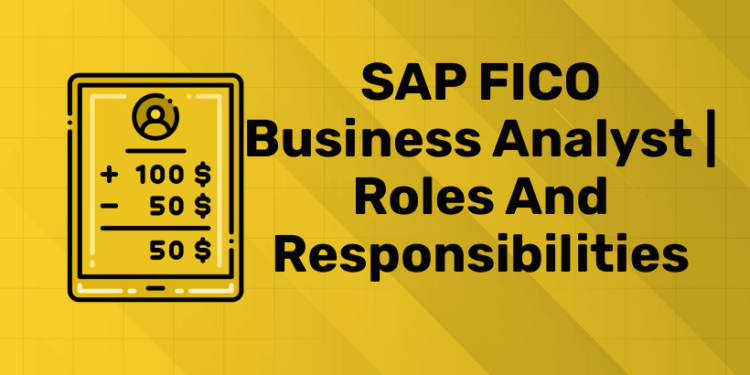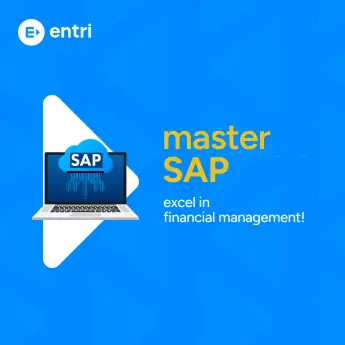Table of Contents
Key Takeaways:
- SAP FICO Business Analysts are the bridge between finance and technology, steering companies toward strategic success.
- Salaries are strong, especially for those with domain expertise and multiple SAP certifications.
- The most successful analysts excel through continuous learning, clear documentation, and strong communication with non-technical teams.
- Career growth can be rapid, moving from analyst to project manager, consultant, or IT leadership roles.
- Entri’s SAP FICO course combines live instruction, hands-on labs, and robust placement services to kickstart your journey.
Introduction: Navigating Your SAP FICO Journey
Imagine stepping into a role where technology and finance meet—where each thoughtful decision sends waves of impact across an entire business. The SAP FICO Business Analyst is much more than a system expert: this role asks you to listen, analyze, collaborate, and innovate in a world where companies rely on robust financial data to survive and thrive. For those who crave purpose in their work, the SAP FICO ecosystem offers a vibrant stage for growth, creativity, and practical impact.
The rapid pace of digital transformation means every organization seeks professionals who can blend financial insight with technical expertise. You don’t have to be a tech wizard or an accounting guru to get started—but being curious, collaborative, and committed to learning can make you the linchpin that keeps processes running smoothly and business moving forward.
What is SAP FICO?
SAP FICO (Financial Accounting and Controlling) represents two integrated SAP modules at the heart of most business operations. FI manages critical accounting flows—from accounts payable and receivable to general ledger and asset accounting—while CO enables cost control, budgeting, and internal financial reporting. Together, these modules support organizations in meeting compliance requirements, optimizing cash flows, and making smarter strategic decisions.
Tip: If you’re new to SAP, familiarize yourself with each sub-module. Understanding how FI and CO interlink is the key to solving complex business problems and helping companies adapt to industry changes.
Join to learn SAP FICO from the Experts! Click for the demo class!
Master SAP with Expert-Led Courses
Unlock your potential with our comprehensive SAP courses! Learn essential modules like SAP MM (Materials Management), SAP SD (Sales and Distribution), and SAP FICO (Financial Accounting and Controlling) from industry experts.
Know MoreWho Is a SAP FICO Business Analyst?
A SAP FICO Business Analyst is a unique blend of finance professional and technology strategist. Your core mission is to optimize business processes, design efficient technical solutions, and bridge communication between end users, finance teams, and IT departments. Every day brings a mix of interviews, workshops, configuration tasks, testing scenarios, and ongoing support—all driven by a commitment to improved business performance.
Example: A leading manufacturing firm successfully cut its month-end closing time by 40% after its SAP FICO analyst streamlined the accounts reconciliation process and automated reporting workflows.
Key Roles and Responsibilities
Requirement Gathering & Analysis
- Conduct stakeholder interviews, workshops, and discovery sessions to understand business needs.
- Document requirements with clarity, ensuring all perspectives are considered.
- Analyze business processes for opportunities to streamline workflows and reduce errors.
Tip: Collect feedback at multiple stages. Involving stakeholders early reduces future revisions and increases buy-in.
Solution Design and SAP Configuration
- Map functional business needs into SAP FICO modules, customizing system processes as needed.
- Configure ledgers, cost centers, asset parameters, and reporting templates.
- Design integration points with other ERP modules like SAP MM (Materials Management) or SD (Sales & Distribution).
Tip: Always test configuration changes with sample data and validate against live business scenarios before deployment.
Join to learn SAP FICO from the Experts! Click for the demo class!
System Implementation & Testing
- Implement SAP FICO functionalities, collaborating with developers to optimize technical solutions.
- Develop test scripts, conduct unit and integration testing, lead User Acceptance Testing (UAT).
- Identify bugs or misalignments, coordinating fixes with tech teams.
Example: During a major SAP rollout, proactive testing uncovered mismatches in cost allocation, leading to swift process adjustments and avoiding a costly error.
Data Migration & Integration
- Oversee secure migration of legacy financial data into SAP FICO.
- Design and validate data transformation programs to ensure consistency and audit trails.
- Enable seamless integration with other SAP modules, external accounting platforms, and analytics tools.
User Training and Support
- Develop comprehensive user manuals, how-to guides, and troubleshooting documentation.
- Conduct classroom and remote training sessions for finance teams and managers.
- Offer ongoing support, resolve tickets, and update training resources as modules evolve.
Tip: Build a FAQ guide for users on common SAP FICO queries—it reduces support load and accelerates onboarding.
Financial Reporting
- Design custom reports and financial dashboards within the SAP platform.
- Regularly update templates for compliance, management, and statutory reporting needs.
- Support quick analysis for audits, corporate reviews, and external reporting requirements.
Continuous Improvement
- Monitor new SAP releases and updates—such as S/4HANA, cloud integrations, analytics dashboards.
- Proactively recommend changes to boost operational efficiency or compliance alignment.
- Benchmark current practices against industry standards and leading competitors.
Tip: Network with SAP communities (forums, events) for insights on emerging trends and solutions.
Compliance & Documentation
- Implement processes to meet internal controls, audit standards, and regulatory requirements.
- Maintain robust documentation of SAP configurations, change logs, and training records for future reference.
Project Management
- Lead end-to-end SAP projects: from scoping and planning to rollout and post-launch review.
- Manage timelines, resource allocation, and cross-team collaboration.
Salary Insights for SAP FICO Business Analysts (India, 2025)
| Experience Level | Annual Salary (INR) | Monthly Salary (INR) |
|---|---|---|
| Entry Level (0-3 yrs) | ₹3,24,600 – ₹6,84,300 | ₹37,070+ |
| Mid-Level (4-9 yrs) | ₹6,75,400 – ₹9,84,300 | ₹45,000 – ₹53,000 |
| Senior (10+ yrs) | ₹9,84,300 – ₹15,00,000+ | ₹81,250+ |
| Business Analyst Avg | ₹14,96,397 – ₹21,10,000 | ₹99,848+ |
Salaries may increase considerably in top MNCs, consultancies, and in high-demand cities like Bengaluru, Pune, and Hyderabad.
Tip: Look for roles that offer variable pay, bonuses, and upskilling support—these can boost your total package.
Master SAP with Expert-Led Courses
Unlock your potential with our comprehensive SAP courses! Learn essential modules like SAP MM (Materials Management), SAP SD (Sales and Distribution), and SAP FICO (Financial Accounting and Controlling) from industry experts.
Know MoreSkills Needed to Thrive
- Business Acumen: In-depth knowledge of finance, accounting, and cost control principles. Understand the language of CFOs and accountants.
- SAP FICO Expertise: Mastery over configuration, customization, workflow automation, and integration of FI/CO modules.
- Analytical Thinking: Ability to dissect complex problems and design creative, effective solutions.
- Communication & Collaboration: Capacity to translate technical jargon into business solutions accessible to every stakeholder.
- Project & Change Management: Efficient handling of timelines, cross-team dependencies, budgets, and shifting priorities.
- Continuous Learning: Quick adaptation to new SAP features (like S/4HANA, analytics, cloud) and best practices.
Tip: Enrich your skillset by taking online courses, certifications, and actively participating in SAP forums.
SAP FICO Business Analyst Career Pathways and Advancement
Career progression may look like:
- SAP FICO Business Analyst (Entry)
- Senior Analyst / Functional Consultant (FI/CO focus)
- SAP Project Manager or Solution Architect
- Module Specialist (expanding into SAP MM, SD, PP)
- IT Delivery Manager or Digital Transformation Lead
Case study: Many successful SAP FICO professionals start by specializing and then broaden their expertise into project delivery and leadership roles, paving the way for lucrative management positions.
Career Roadmap: Your Step-by-Step Guide
- Education: Obtain a bachelor’s degree in IT, finance, accounting, or business administration. Certifications in PMP, ITIL, or SAP further strengthen your profile.
- Skill Building: Practice on SAP platforms, master data reporting, and analytics tools.
- Networking: Attend SAP seminars, webinars, and online meetups; build a LinkedIn presence.
- Training & Internships: Gain hands-on exposure through internships and live projects; ask for feedback on each assignment.
- Application: Prepare a project-focused resume, leverage AI resume builders (like Entri’s), and showcase your impact.
- Job Search: Apply via multiple channels—job boards, consultancy firms, LinkedIn, and direct outreach to target companies.
Tip: Compile a portfolio with screenshots or reports from SAP projects you’ve contributed to—it’s invaluable at interviews.
High-Ranking Tips for Aspiring SAP FICO Business Analysts
- Immerse yourself in how business operations shape financial flows—read company annual reports and interview department heads.
- Master both FI and CO modules, but also gain a working knowledge of related areas (MM, SD).
- Stay current on SAP upgrades: S/4HANA, cloud deployments, embedded analytics.
- Document every change meticulously. Good documentation saves time, ensures compliance, and simplifies audits.
- Polish your presentation skills—communicate processes and results to varied audiences.
Tip: Maintain a “Lessons Learned” log after each project to avoid repeat mistakes and build credibility.
Join to learn SAP FICO from the Experts! Click for the demo class!
Why Choose Entri’s SAP FICO Course?
Entri’s SAP FICO course leads the field by offering:
- Expert Trainers: Learn directly from seasoned SAP professionals with backgrounds in finance, technology, and consulting.
- Updated Curriculum: Covers all SAP FICO modules, reporting, real-world use cases, and the latest SAP technologies including S/4HANA.
- Live Projects & Assignments: Hands-on practice with real SAP systems and client scenarios.
- Placement Assistance: Personalized resume building, interview coaching, employer connections to top firms.
- Community Learning Support: Collaborate with peers, get answers from expert mentors, and stay current on industry best practices.
Tip: Feel free to attend a demo class and explore real-time success stories from past Entri graduates.
Explore Entri’s SAP FICO Training Course today and fast-track your career with robust expertise and placement support.
Conclusion
SAP FICO business analysts are more than technical experts—they’re problem-solvers, communicators, and strategic partners shaping the financial backbone of organizations. With robust demand and evolving technology, the future for SAP FICO professionals is brighter than ever. If you’re ready to step into a high-impact role, Entri’s course will give you every advantage to succeed—enrol soon, and unlock the next chapter of your career.
Enroll In Our Comprehensive SAP FICO Course Now
Master SAP with Expert-Led Courses
Unlock your potential with our comprehensive SAP courses! Learn essential modules like SAP MM (Materials Management), SAP SD (Sales and Distribution), and SAP FICO (Financial Accounting and Controlling) from industry experts.
Know MoreFrequently Asked Questions
What is the minimum qualification for a SAP FICO Business Analyst?
A bachelor’s degree in IT, finance, business, or related field is essential, with SAP certification highly recommended for standout candidates.
How long does it take to become a SAP FICO Business Analyst?
Generally, 3–5 years (education plus hands-on work experience)—faster for those in intensive training environments.
Is SAP FICO a good field for freshers?
Absolutely. SAP FICO is well-paid, in-demand, and has paths to specialization, consulting, or management.
What are critical skills to develop?
Business acumen, technical SAP know-how, analytics, communication, and project management prowess.
Are remote or hybrid roles available?
Yes—many SAP FICO roles now offer flexible work arrangements, especially for experienced analysts.
Which certifications improve career prospects?
SAP Certified Application Associate (FI/CO), PMP, ITIL, ACCA, and analytics certifications.















